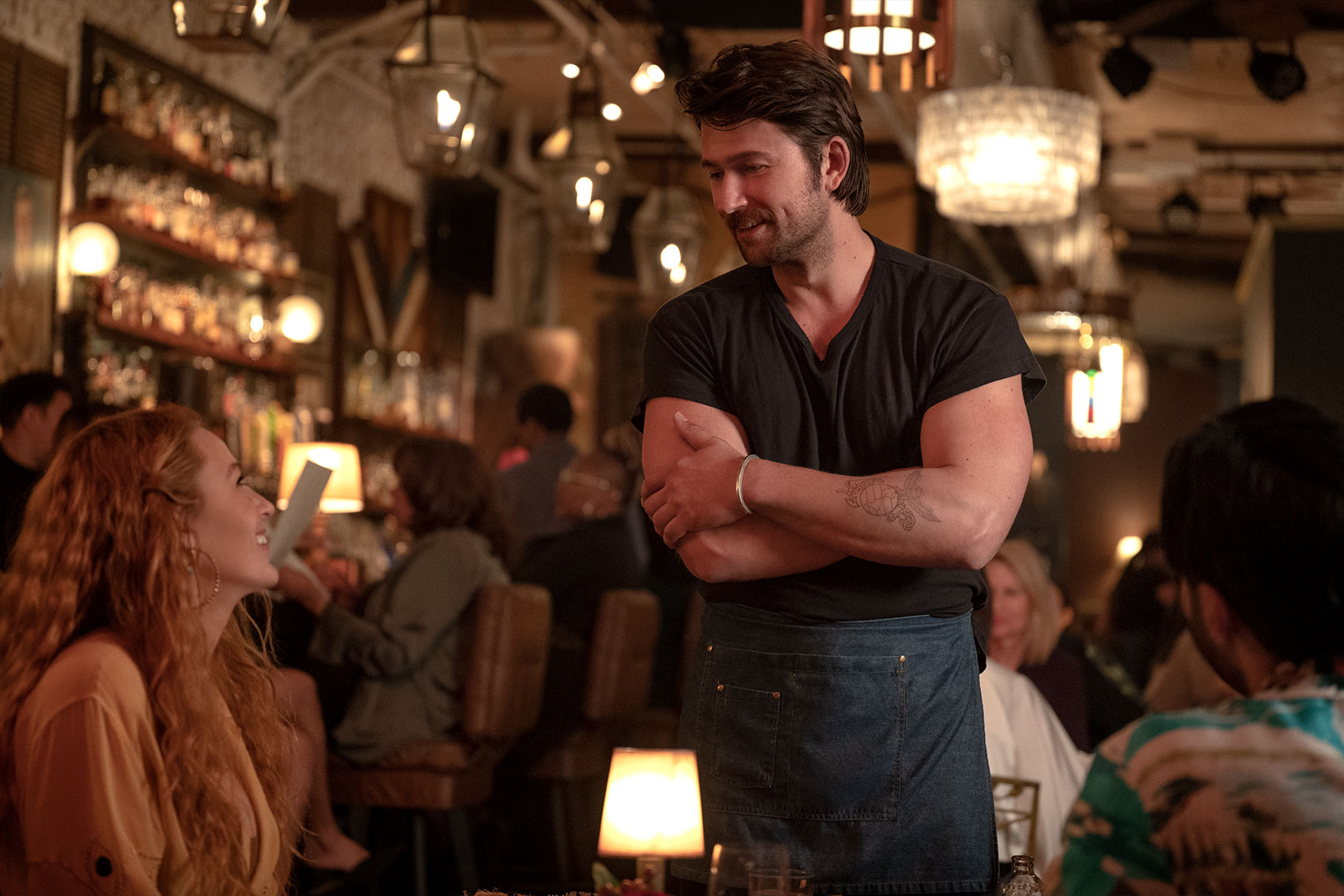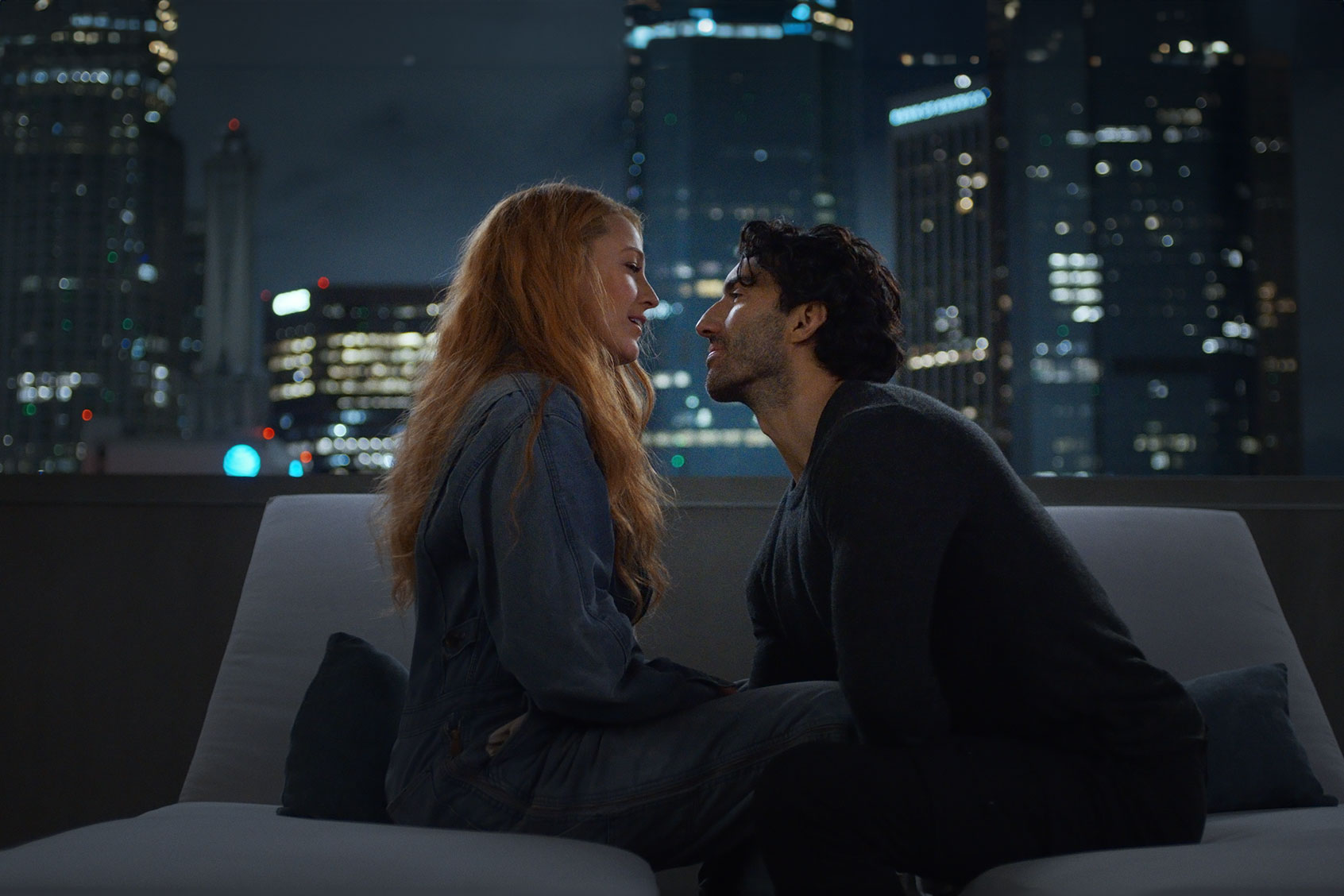It is fitting that the off-screen drama surrounding Blake Lively and the cast of "It Ends with Us" has eclipsed the actual drama depicted in the movie. Lively and cast have been under fire for not addressing domestic violence in the lighthearted public relations campaign surrounding their movie. That's on top of a rumored feud with director and co-star Justin Baldoni, who reportedly even hired a crisis PR team to help with some of the backlash. For a movie about domestic violence – which Colleen Hoover, the author of the book on which it’s based, wrote about her parents’ own abusive relationship – "It Ends with Us" and its cast have tried really hard to not actually talk about domestic violence. Well, at least, not realistically. As a lawyer who represents survivors of domestic violence and their children, I’d like to use the timing of the movie’s release – on the eve of the 30th anniversary of the enactment of the Violence Against Women Act (VAWA) – as an opportunity to tell a more accurate story about intimate partner violence.
The movie perpetuates the stereotype that abusers are just people who cannot control their anger.
Nearly 24 people per minute are physically abused by an intimate partner in the United States. That’s more than 12 million people a year. And, to its credit, "It Ends with Us" attempts to capture the nuance behind millions of stories by constructing a plausible narrative about why Lively’s character Lily is attracted to and stays with her abuser, Ryle (Baldoni). He’s a brooding, successful and single neurosurgeon. They have great chemistry and when their relationship is good, it’s really good. But the movie does a disservice to the inevitable (and maligned) question – “Why do women stay?” The two-hour run time could have been used more economically to parse out the complicated devil in the details.
In one of the opening scenes, for example, Lily witnesses Ryle kick a chair. From there, the movie perpetuates the stereotype that abusers are just people who cannot control their anger – who have bouts of “seeing red” in between episodes of being “normal.” But abusers are not out of control – in fact, they’re the most in control. Domestic violence is a pattern of premeditated behavior used as a tool to control an intimate partner – it is not just physical, it is not random, and it is not a snap action or anger management issue. Approximately 75-99% of survivors of physical violence have also experienced economic abuse – like restricting access to bank accounts, being given a limited “allowance” – and emotional abuse through insults, humiliation and fearmongering.
Nor does the script shed light on any underlying motivations that Ryle may have for keeping Lily down. In most abusive relationships, the episodes of violence, while horrific, are just the tip of the iceberg. Abusers usually employ tactics of social and economic isolation, which undermine the victim’s ability to extricate herself from what is happening. The movie hints at this at times – when Ryle gaslights Lily after the first hit – but it grossly simplifies things. Most victims are trapped and don’t have access to an immediate support system or exit strategy as Lily has through Ryle’s sister, her knight in shining armor Atlas and her mother’s home. This is the abuser’s playbook. The fact that there’s even a second love interest in Atlas is what one would expect if they prompted ChatGPT to write a formulaic novel or movie plot. It’s not real life. In real life, abuse is all-consuming and life-threatening. There’s no immediate escape hatch – and it certainly doesn’t come in the shape of Brandon Sklenar.
 Blake Lively and Brandon Sklenar in "It Ends With Us" (Courtesy of Sony Pictures Entertainment/Jojo Whilden)
Blake Lively and Brandon Sklenar in "It Ends With Us" (Courtesy of Sony Pictures Entertainment/Jojo Whilden)
By failing to depict these truths, the movie belies other nuances. Many abusers experience violence as children. As the saying goes, “hurt people hurt people.” We should be able to say this without also giving abusers a pass. But the movie does just that. At the end, we find out that as a young child, Ryle accidentally killed his sibling. I appreciate the attempt to make abusers human, but the science of why people become abusers doesn't back up the causation alluded to in the movie. Why would accidentally killing one's sibling make someone an abuser? The more likely scenario is that an abuser would be replicating the violence they saw between their own parents or that they were abused themselves.
For real survivors, the first attempt at leaving is almost never successful.
The movie also conveniently skirts the complicated issue of what would likely happen once Lily gives birth. As an attorney for victims, I have rarely (if ever) been involved with a case where the abuser doesn’t use children as a way of keeping his victim down. And it would probably surprise moviegoers that judges almost always award alleged abusers some form of shared physical parenting time. The process of judicial determination can also drag on for months, if not years, during which time the victim continues to feel unstable and in constant fear of losing her children. Without or without children, it is completely unrealistic that this abusive relationship would end abruptly with Ryle walking away peacefully to lick his wounds. For real survivors, the first attempt at leaving is almost never successful. And in my experience, there is no scenario where a victim is able to divorce an abusive husband with a pregnancy looming.
The dreamy cinematography, quirky characters and cast’s deflecting and inappropriate talking points during the press tour gave me the illusion that I had watched a rom-com, not a drama. The heroine’s name being Lily Bloom – oh, and she just so happens to run a gothic flower shop! – made it really difficult to take the movie seriously. And the casting didn’t help. What is hilarious, beloved Jenny Slate doing here? And comedian Hasan Minhaj? These choices undermined my expectation that this movie would treat a sensitive subject with the reverence it deserves, and ultimately, it made me feel that the abuse storyline was an afterthought.
Capturing the truth of domestic violence is a mammoth task – and perhaps those involved with "It Ends with Us" expected accolades for even attempting it. But they owe a responsibility to the millions that live with fear every day – to tell their stories faithfully – and an even bigger responsibility to the young women who will one day experience intimate partner violence to not romanticize it. Here’s hoping that the rumored sequel is just that – a rumor.
If you are experiencing domestic violence, call the National Domestic Violence Hotline at 1-800-799-7233, or go to thehotline.org.
Read more
about this topic


